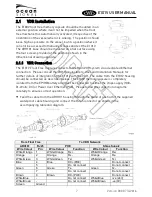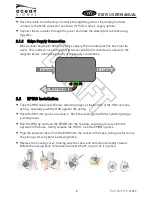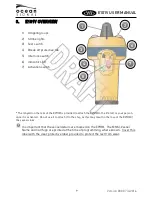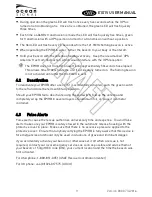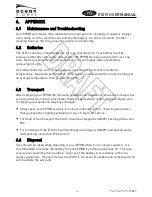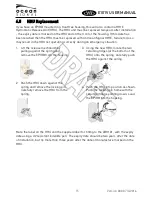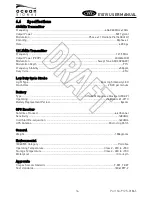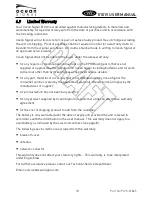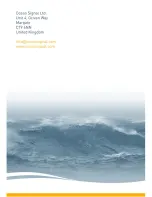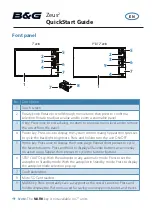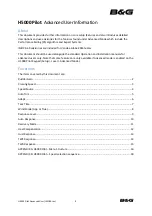
E101V USER MANUAL
6
Part No 912S-01865
a) EPIRB floating in
water
b) EPIRB deployed on
deck
c) EPIRB used in a
liferaft.
1.5
COSPAS/SARSAT System
The COSPAS/SARSAT system utilises two satellite arrays to provide distress alert and
location data to search and rescue authorities. The GEOSAR system can provide near
immediate alerting within the coverage of the receiving satellite. The LEOSAR system
provides coverage of the polar region beyond
the range of the GEOSAR system. It can
calculate the location of distress events using
Doppler processing techniques and is less
susceptible to obstructions which could block
a signal in a given direction. The system is
comprised of instruments on board the
satellites which detect the signals from the distress beacons. Ground receiving stations,
referred to as Local Users Terminals (LUTs) receive and process the satellite downlink
signal to generate the distress alerts. The distress alerts, generated by the LUTs, are then
received by Mission Control Centres (MCCs) which then forward the alert to Rescue Co-
ordination Centres (RCCs), Search and Rescue Points of Contacts (SPOCs) and other MCCs.
2.
Installation
The E101V should be mounted where it is easily accessible in an emergency.
Do not mount the EPIRB closer than 1 metre to any steering compass as this may
affect the accuracy of the compass. Keep the EPIRB away from any strong magnetic
sources such as loudspeakers, compass compensation magnets, etc., which might
cause inadvertent activation.
Summary of Contents for E101V
Page 19: ...E101V USER MANUAL 19 Version 00 30 7 4 2016...
Page 20: ......







